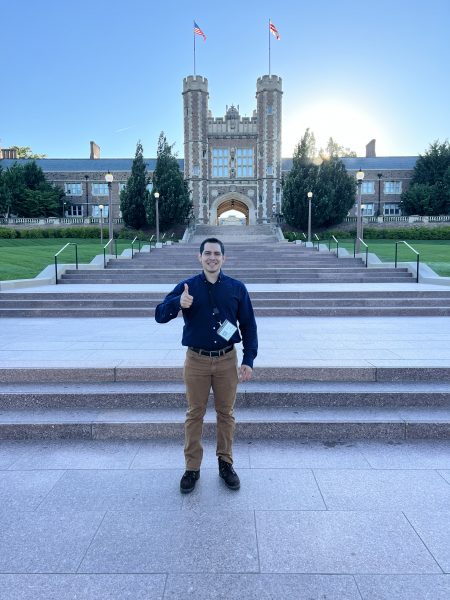First, I would like to extend my gratitude to the Graduate Dean Awards Advisory Panel for recommending me for this prestigious award. I also want to acknowledge the department of Civil, Environmental, and Geospatial Engineering for its support during my PhD studies. Most importantly, I thank my advisor Dr. Daisuke Minakata, who has guided me throughout my journey and equipped me with critical thinking skills. Without his unwavering commitment, understanding, and guidance, I would not have achieved the level of proficiency as a PhD student that I possess today.
I have been passionate about chemistry ever since I was in high school. Chemistry teaches you how matter transforms, and because matter is everything we are surrounded by, chemistry essentially helps you to understand the world. Many of the big problems our world faces can be tackled in some way from a chemical perspective. Energy, pollution, water scarcity, health, are some of the global issues that are actively being addressed with chemistry.
During my PhD, I have translated my chemistry background to the environmental engineering field by understanding how pollutants are transformed in natural and engineered water systems, such as lakes, rivers, or water treatment plants. My philosophy is that the molecular details of those chemical reactions have a profound influence on the rate of degradation and products distribution. This led me to publish papers where I show that we can use results from molecular simulations to explain phenomena at the bulk scale such as how fast reactions take place. Understanding these details will enable engineers to optimize operational parameters on the removal of contaminants, and will inform environmental policy makers about the fate of toxic compounds once released to bodies of water.
